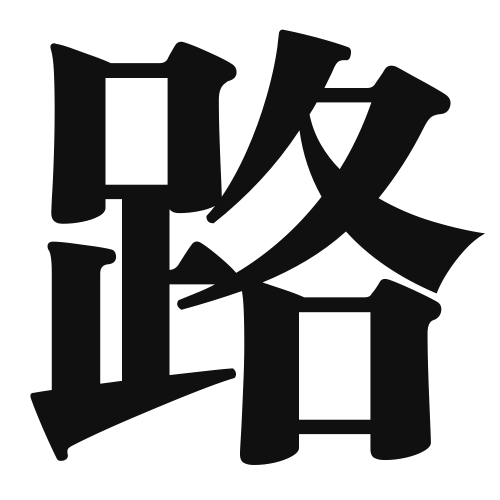1. Overview of Meaning
The kanji “路” (pronounced “ro” in Japanese) means “road” or “path.” It refers to a way or route that people or vehicles can take to travel from one place to another.
2. Formation and Radical
The kanji “路” is a compound character (会意文字) that combines two elements: the radical “足” (meaning “foot” or “leg”) at the bottom, which relates to movement, and “各” (meaning “each” or “every”) at the top, suggesting various paths or routes.
The radical “足” is significant as it emphasizes the idea of walking or traveling along a path.
3. Examples of Usage
Common words and phrases that include “路” are:
- 道路 (どうろ, dōro) – road
- 進路 (しんろ, shinro) – course or route
- 路線 (ろせん, rosen) – route or line (as in transportation)
Example sentence in daily conversation:
「この路はとても混んでいます。」 (このろはとてもこんでいます。) – “This road is very congested.”
4. Synonyms and Antonyms
Similar kanji with related meanings include:
- 道 (どう, dō) – also means “road” or “way,” but can imply a broader philosophical or moral path.
Antonyms include:
- 障害 (しょうがい, shōgai) – obstacle or hindrance, which implies something that blocks a path.
5. Cultural and Historical Background
The kanji “路” is deeply connected to Japanese culture, where roads symbolize journeys and life paths. In traditional Japanese literature, roads often represent the journey of life and the choices one makes.
Proverbs and idiomatic expressions include:
- 「道は開ける」 (みちはひらける, michi wa hirakeru) – “The road will open,” meaning that opportunities will arise if one perseveres.
